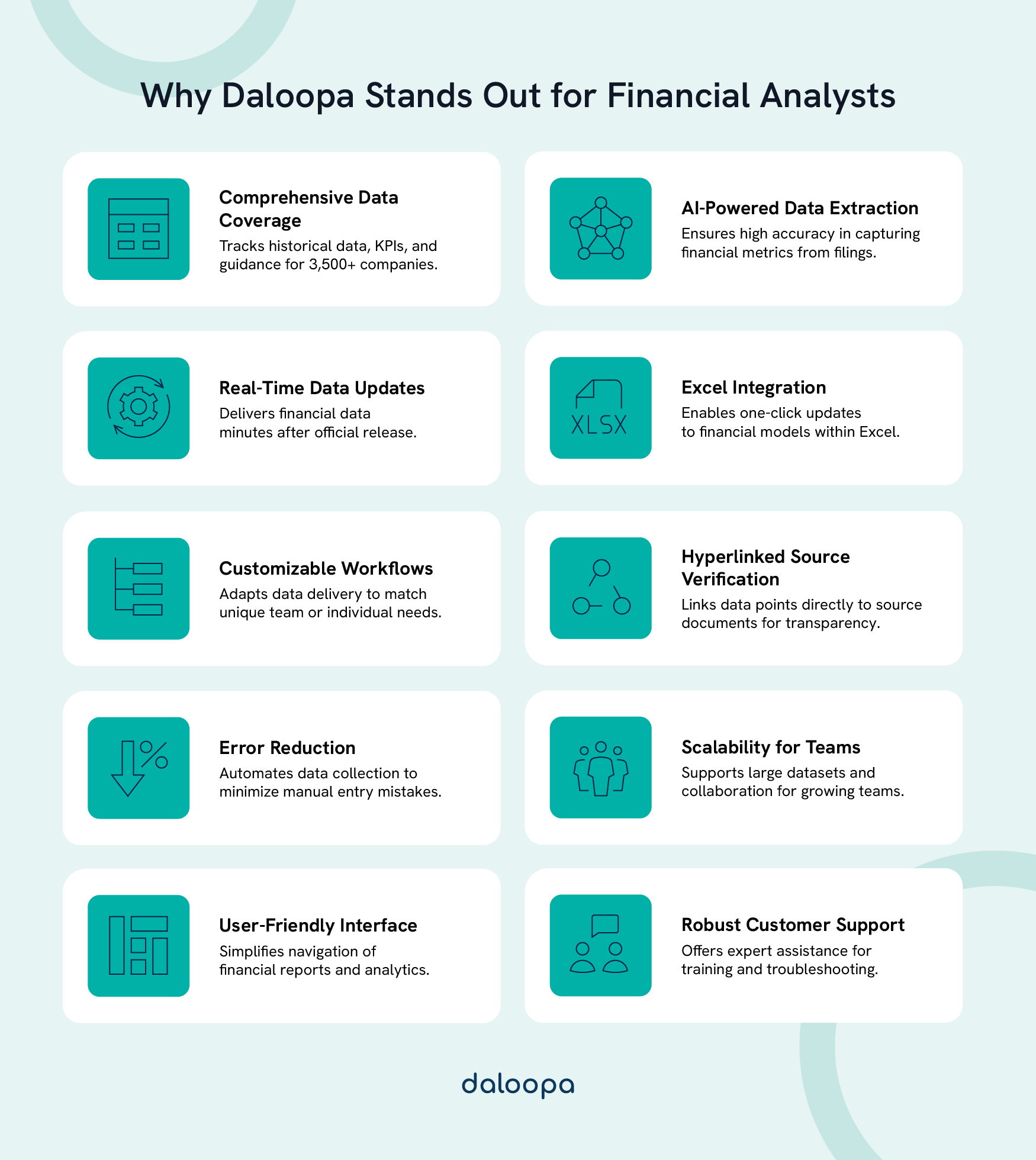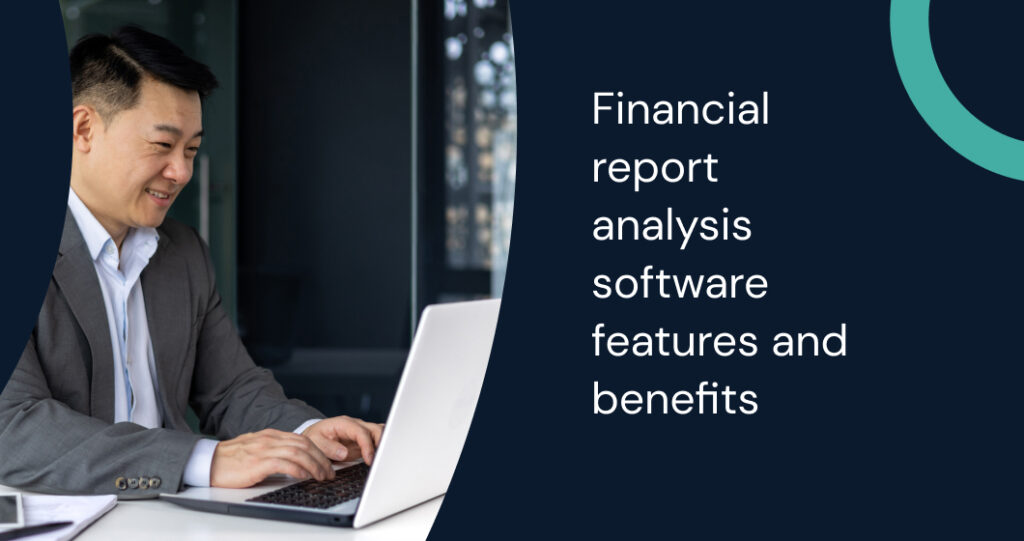In today’s fast-paced business environment, outdated tools and inefficient processes can create bottlenecks for finance professionals. Financial analysis software has emerged as a critical solution, offering advanced capabilities to improve accuracy, streamline operations, and drive better decision-making. With the rise of automation, artificial intelligence (AI), and cloud technologies, selecting the right software is no longer a luxury but a necessity to stay competitive.
Finance teams often face challenges like fragmented data, manual errors, and limited insights. Modern financial analysis tools address these pain points by providing intuitive dashboards, seamless integration capabilities, and powerful real-time financial analytics, saving time and helping organizations uncover actionable insights to achieve strategic objectives.
If you’re looking for a solution that enhances efficiency and delivers real-time insights, consider the top financial analysis software for professionals to stay ahead in today’s data-driven landscape.
Key Takeaways
- Advanced software automates repetitive tasks and enhances data accuracy.
- Predictive and real-time financial analytics and data processing enable better decision-making.
- Scalable and customizable tools cater to diverse organizational needs.
Technological Influences that Affect Financial Analysis
Modern financial analysis tools have transformed traditional workflows, enabling professionals to focus on strategy rather than repetitive tasks. These tools leverage cutting-edge technology to provide unparalleled insights, foster collaboration, and enhance efficiency.
Advanced Analytics and AI Integration
AI-driven analytics and predictive modeling have become game-changers in financial analysis. For example, AI algorithms can identify trends in historical data, simulate various financial scenarios, and forecast potential outcomes. A retail company using these AI financial analysis tools could predict seasonal demand fluctuations and adjust inventory levels, avoiding overstocking or stockouts.
AI also improves risk management by identifying anomalies in financial transactions. For instance, early detection of irregular cash flow patterns can help organizations mitigate potential risks and improve overall financial stability.
Real-Time Data Processing
Gone are the days of relying on outdated reports. Real-time financial analytics and data processing allows finance professionals to monitor key performance indicators (KPIs) as they happen. For example, during a quarterly budget review, finance teams can identify overspending trends and adjust allocations immediately, ensuring targets remain on track.
Scenario Analysis for Strategic Planning
Scenario analysis tools enable organizations to simulate and evaluate various business strategies. For example, a manufacturing company considering entering a new market could use scenario analysis to forecast the financial impact of different pricing models. These insights help executives make data-driven decisions with confidence.
Cloud-Based Collaboration and Accessibility
Cloud technology facilitates seamless collaboration and ensures teams can access the latest financial data anytime, anywhere.
Cloud-based tools offer scalability, robust security measures, and real-time collaboration, empowering finance teams to work efficiently across geographies.
Automation and Workflow Efficiency
Automation has streamlined many aspects of financial analysis, reducing the time spent on repetitive tasks like data entry, reconciliation, and financial statement preparation. By automating these processes, finance professionals can allocate more time to high-value activities such as strategic planning and performance optimization.
Integration with other business systems further enhances workflow efficiency. Modern AI financial analysis tools can connect seamlessly with enterprise resource planning (ERP) systems, customer relationship management (CRM) platforms, and other software. This integration provides a comprehensive view of an organization’s financial health, facilitating better decision-making.
Things to Look for When Choosing Financial Analysis Software
Choosing the right financial analysis software requires careful evaluation of features, compatibility, and long-term value. When selecting among the top financial analysis software for professionals, it’s essential to consider factors like automation capabilities, real-time financial analytics, and seamless integration to ensure the best fit for your needs. Here are the key elements to consider when selecting a solution.
AI-Powered Data Extraction and Accuracy
AI financial analysis tools like Daloopa automate repetitive tasks such as data extraction and reconciliation, significantly reducing manual errors. Features like anomaly detection and natural language processing enhance accuracy and simplify reporting, ensuring finance teams spend more time on strategic activities.
Key features to look for when selecting the top financial analysis software for professionals include:
- Automated data extraction: Eliminate manual input by pulling data directly from diverse sources.
- Real-time updates: Ensure accuracy with up-to-date information.
- Anomaly detection: Use AI to identify discrepancies or unusual patterns in data.
- Natural language processing: Simplify report generation with conversational data queries.
These capabilities enhance data quality and free up resources for more strategic analysis.
Comprehensive Data Coverage and Insights
AI Financial analysis tools should integrate seamlessly with existing systems, such as enterprise resource planning (ERP) platforms and customer relationship management (CRM) software. Comprehensive data coverage enables a holistic view of organizational performance, aiding in better decision-making.
Essential features include:
- Advanced modeling: Simulate scenarios to forecast future outcomes and identify opportunities.
- Benchmarking tools: Compare performance metrics against industry standards for context.
- Custom dashboards: Visualize key trends and metrics in real-time.
By offering deeper insights, these AI financial analysis tools empower organizations to make informed decisions and stay ahead of competitors.
Customization and Scalability
Scalability ensures the software grows with your organization, while customization allows tailoring dashboards, reports, and workflows to meet unique business needs.
For example, Daloopa’s scalable architecture adapts to increasing data volumes, making it an ideal choice for organizations planning future expansion.
User Experience and Training
An intuitive interface and robust training resources are essential for maximizing the value of financial analysis software. Vendors offering comprehensive onboarding and customer support ensure teams quickly adopt and leverage the tool’s full potential.

3 Popular Types of Financial Analysis Software
Here are the leading tools that cater to various financial analysis needs, from foundational spreadsheets to cutting-edge AI platforms. For those seeking the best solution to elevate their financial decision-making, the top financial analysis software for professionals offers advanced features to optimize accuracy and efficiency.
1. Microsoft Excel: A Tried-and-True Essential
Microsoft Excel continues to be a trusted tool for financial professionals worldwide. Its versatility supports various financial tasks, from basic calculations to advanced modeling. Built-in functions like VLOOKUP, NPV, and IRR simplify key financial calculations, while add-ins like Solver enhance its analytical capabilities.
Excel’s integration with AI-powered tools like Daloopa makes it invaluable for presenting insights to stakeholders without requiring heavy manual work. Take a look at the video below to see how:
2. Manual Tools: Flexible and Cost-Effective
Manual tools like financial calculators and spreadsheet templates remain relevant for smaller organizations and quick analyses.
For example, financial calculators are ideal for on-the-spot computations, such as determining loan payments or calculating ROI. On the other hand, spreadsheet templates serve as structured starting points that can be tailored to specific needs.
3. AI-Driven Financial Analysis Software
AI-powered platforms like Daloopa leverage advanced algorithms to process massive datasets, uncover trends, and enhance forecasting accuracy.
Cloud-based solutions offer additional benefits like scalability, collaboration, and robust security features. With natural language processing capabilities, these platforms make financial data more accessible to a broader audience, including non-technical stakeholders.
Maximizing the Value of Financial Analysis Software
Investing in financial analysis software is a significant decision that can transform how organizations approach their financial operations. To maximize the value of your investment, consider the following:
Aligning Software with Business Goals
Ensure that the software supports your strategic objectives. Whether you need robust forecasting tools, detailed reporting, or seamless integration with other systems, the right solution should align with your organization’s long-term vision.
Conducting a Cost-Benefit Analysis
Evaluate both the direct and indirect costs of the software, including implementation, training, and maintenance. Compare these costs against the expected benefits, such as improved efficiency, better decision-making, and enhanced accuracy.
Leveraging Training and Support Resources
Use training programs, customer support, and user communities to understand and fully utilize the software’s features. A well-trained team will extract more value from the tool, leading to better outcomes.
Empowering Finance Professionals with Cutting-Edge Tools
Financial analysis software has evolved into a must-have resource for finance professionals. From Excel’s tried-and-true capabilities to AI-driven platforms like Daloopa, the top financial analysis software for professionals enable organizations to streamline operations, improve accuracy, and gain a competitive edge.
Experience the transformative power of Daloopa’s AI-driven financial analysis platform. With unparalleled accuracy and automation, Daloopa empowers finance teams to focus on strategy, not spreadsheets. Request a demo today at Daloopa and take the first step toward smarter financial decision-making.



